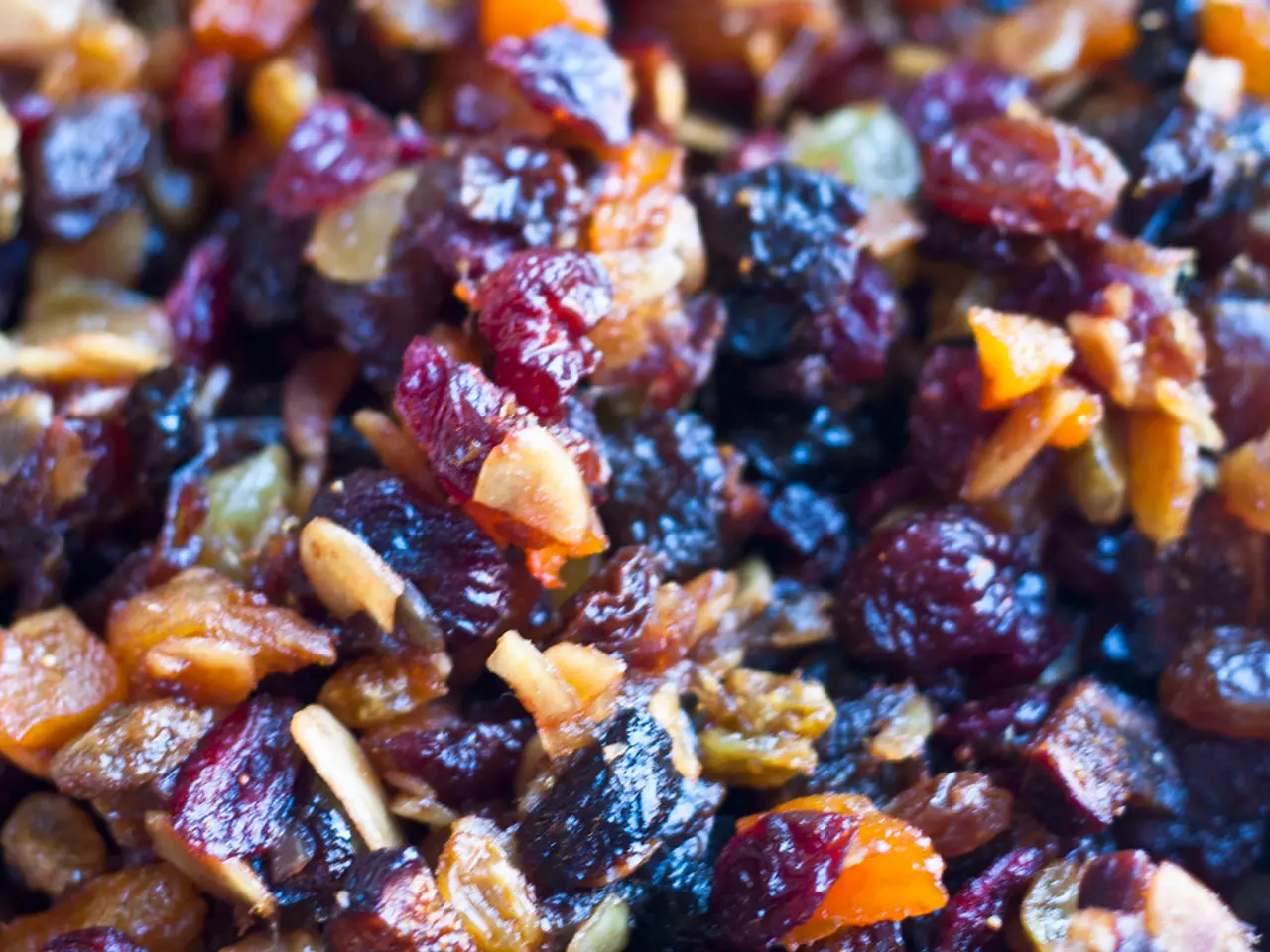Fermented Components Industry Forecasted to Increase at a Rate of 9.1% Annually by 2034
In the realm of food and beverage production, a significant shift is underway. The Fermented Ingredients Market is projected to grow substantially, reaching an estimated USD 69.0 billion by 2034, according to recent projections[1]. This represents a compound annual growth rate (CAGR) of 9.1% during the period of 2025–2034.
Key factors driving this growth include the rising demand for alternative proteins as consumers seek sustainable and health-friendly food options. Technological advancements in fermentation processes, such as precision fermentation, which enhance efficiency and broaden application scope, are another significant driver[1].
Government initiatives and funding are also playing a crucial role. For instance, the U.S. Department of Agriculture (USDA) and the U.S. Economic Development Administration have provided grants to innovative fermentation hubs[1]. There's also a growing trend towards sustainable and efficient food production methods to reduce environmental impact and improve food security[1].
Increased consumer awareness favouring natural, preservative-free ingredients in food and beverages is another contributing factor. The expansion of fermented ingredients applications in diverse industries, including food & beverage, pharmaceuticals, nutraceuticals, animal feed, and industrial uses, also fuels market growth[1][3].
Additional influences include urbanization, changes in consumer lifestyle and purchasing power, and an overall shift towards health-conscious diets emphasizing functional and bio-based ingredients[3][4]. However, challenges such as raw material price volatility and health risk concerns may temper growth somewhat[3].
Notable players in the fermented ingredients market include Bakels, which introduced fermented sourdough concentrates for clean-label baking, reducing additives while enhancing texture and shelf life[2]. BASF SE is advancing precision fermentation for sustainable vitamins and enzymes, partnering with biotech firms to scale production and target animal nutrition and food fortification[2]. Ajinomoto Corporation Inc. has expanded its fermented ingredient portfolio with new amino acid-based solutions for plant-based foods, enhancing umami flavor in meat alternatives and reducing carbon emissions in fermentation processes[2].
Europe holds the largest regional share, contributing to over 38.5% of the global market, while the food and beverage sector led with a market share of more than 31.2% in 2024[2]. By form, liquid fermented ingredients captured over 58.6% of the global market in 2024[2].
Innovations in precision fermentation and increasing consumer awareness of gut health and clean-label products are expected to drive strong market growth for fermented ingredients. For example, AngelYeast Co., Ltd. launched high-performance yeast extracts for savory flavors in snacks and seasonings, as well as bioactive yeast-derived ingredients for gut health supplements[2].
The European Food Safety Authority (EFSA) provides regulatory clarity and safety assessments for novel fermented ingredients, fostering industry innovation and compliance[2]. The European Union allocated €1.6 billion in 2024 for research in food, bioeconomy, agriculture, and environmental sectors, including microbial and precision fermentation, through the Horizon Europe programme[2].
In conclusion, the fermented ingredients market is poised for robust expansion driven primarily by sustainability demands, innovation in fermentation technology, and supportive regulatory and funding environments[1][3]. The demand for plant-based dairy alternatives, sourdough, kombucha, and fortified beverages further drives market growth. Achieving this growth will require over USD 250 billion in cumulative investment to scale fermentation technologies and lower production costs[1].
- The growing demand for sustainable and health-friendly food options, such as alternative proteins, is driving substantial growth in the fermented ingredients market, which is projected to reach an estimated USD 69.0 billion by 2034.
- Urbanization, changes in consumer lifestyle and purchasing power, and an emphasis on health-conscious diets are additional factors contributing to the robust expansion of the fermented ingredients market.
- Technological advancements in fermentation processes, particularly precision fermentation, are increasing market growth by enhancing efficiency, broadening application scope, and reducing carbon emissions in fermentation processes.




